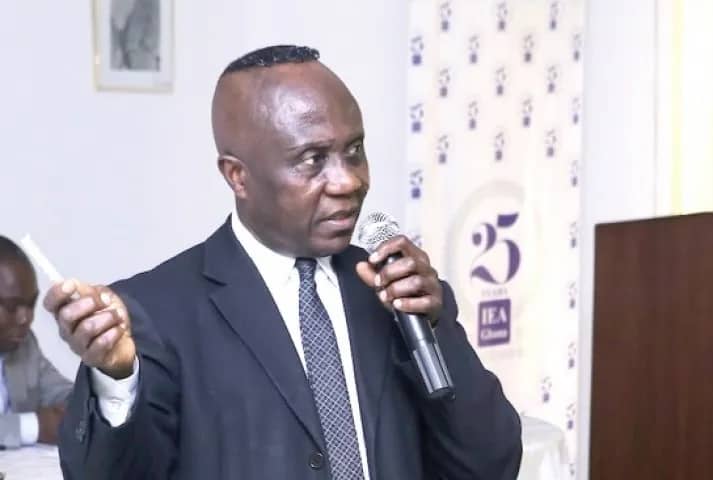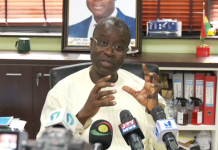The Institute of Economic Affairs (IEA) has proposed major constitutional amendments aimed at protecting Ghana’s natural resources.
This call comes in response to the recent $1 billion sale of Newmont’s Akyem gold mine to China’s Zijin Mining Group, which the IEA considers “flawed” and “against Ghana’s interest.”

In a statement issued on October 21, 2024, the IEA outlined two key reforms to enhance resource governance and curb corruption. First, they recommend amending Article 257(6) of the Constitution, which currently places control of natural resources under the president.
The IEA argues that these resources should instead be vested in the state, with all contracts requiring parliamentary approval, as per Article 268(1).
Secondly, the IEA suggests implementing a rule that bans the government from signing contracts above a certain financial limit within the last six months of its term. This, they argue, would prevent last-minute deals that favor personal or political interests.
The IEA’s proposals reflect a broader concern over how Ghana manages its mineral wealth. They emphasize that the country must stop “selling its birthright cheaply” and instead prioritize national interest in resource contracts.
Specifically, regarding the Akyem mine deal, the IEA raised legal and economic concerns, questioning the transaction’s compliance with existing agreements and pointing out the mine’s potential to generate over $1 billion annually.
The IEA noted that allowing a foreign company like Zijin to acquire the mine contradicts President Akufo-Addo’s earlier statement prioritizing Ghanaian investors.
They also referenced Canada’s decision to limit Zijin’s stake in its domestic minerals sector, urging Ghana to follow a similar approach to protect its economic and national security.
The IEA concluded by advocating for a fundamental shift in how Ghana negotiates its mineral contracts, calling for more equitable production-sharing or service agreements with foreign investors.
























































![[FREE FREE MONEY] Predict and Win a Guaranteed GH¢200 From Us EVERY WEEK](https://wordpress.ghanatalksradio.com/wp-content/uploads/2022/02/Predict-and-Win-Final-09-03-2021-218x150.jpg)
![[Predict & Win – 8th/Oct.] WIN A Guaranteed ¢200 From Us This Week](https://wordpress.ghanatalksradio.com/wp-content/uploads/2021/10/maxresdefault-16-218x150.jpg)
![[Predict & Win – 2nd] WIN A Guaranteed ¢200 From Us This Week](https://wordpress.ghanatalksradio.com/wp-content/uploads/2021/09/maxresdefault-50-218x150.jpg)
![[Predict & Win – 25th] WIN A Guaranteed ¢200 From Us This Week](https://wordpress.ghanatalksradio.com/wp-content/uploads/2021/09/maxresdefault-36-218x150.jpg)
![[Predict & Win – 18th] WIN A Guaranteed ¢200 From Us This Week](https://wordpress.ghanatalksradio.com/wp-content/uploads/2021/09/maxresdefault-23-218x150.jpg)








![[National cathedral] See full list of churches that have contributed since 2018](https://wordpress.ghanatalksradio.com/wp-content/uploads/2020/09/Ghana-National-Cathedral-GhanaTalksRadio-100x70.jpg)



